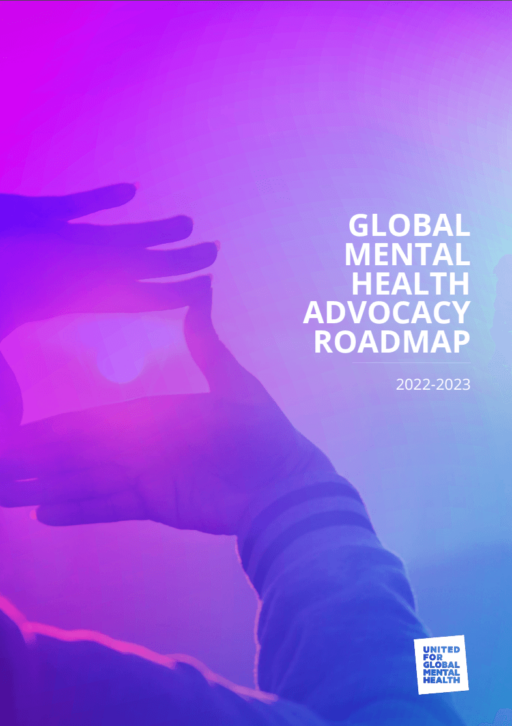Mental health in 2022 – from global to local
By Sarah Kline, CEO and co-founder, United for Global Mental Health
Accelerated by the impact of COVID-19, a growing cross section of society around the world is calling for greater action on mental health. People with Lived Experience have been joined by young people, parents, employers and celebrity champions from sectors as diverse as banking, music and sport.
They are demanding change and seeking to put in place better mental health policies and practice for all. It is now widely accepted that mental health impacts people throughout the life course including during their most productive years.
Research from the Wellcome Trust shows across the world, 92% of people consider mental health as important or more important than physical health for overall well being.
As a result, over the past four years (and particularly in 2021) mental health has risen sharply up the political agenda. In 2021 health ministers agreed the Comprehensive Mental Health Action Plan to guide their work to 2030, with goals and targets to measure their progress. And a host of national governments pledged to take action – launching new policies and programmes and reforming legislation. But a lot more needs to be done.
The combined impact of a challenging economic outlook, the ongoing pandemic, and other factors such as the climate and ecological crisis, have increased the demand for mental health support.
And these same factors have restricted supply due to pressures on public spending and lack of human capacity. Furthermore, there remains considerable stigma surrounding mental health, and this continues to hamper efforts to achieve a rights-based approach to mental health at national and local level.

For mental health, 2022 and beyond will be critical: as the world grapples with huge challenges, investing in better mental health needs to be part of the solutions.
From ending the COVID-19 pandemic to building back the economy; from improving our environment to reforming healthcare for the future. In all cases integrating mental health will accelerate progress towards solutions and ensure a more resilient future for everyone.
The Global Mental Health Advocacy Roadmap for 2022-2023 sets out how we can collaborate to make change happen. The product of discussions and inputs from multiple stakeholders around the world, it identifies a series of objectives that will be central to accelerating progress on mental health. These are:
- Achieve Global and National Policy Reform and Increased Financing
- Integrate Mental Health in Universal Health Coverage
- Uphold the Rights of All Persons to Good Physical and Mental Health
- Strengthen Monitoring and Accountability
- Develop and Disseminate Best Practice
Download the Global Mental Health Advocacy Roadmap
- Mental health will be integrated in national COVID-19 response and recovery plans; and in universal health coverage plans.
- Mental health will be included in commitments from the G7 and the G20, and as part of the replenishments of the Global Fund to Fight AIDS, TB and Malaria and the Global Financing Facility.
- Awareness on the importance of rights-based mental health-related legislation will be increased when the Human Rights Council adopts a new resolution on mental and human rights in 2022, calling for CRPD-compliant mental health-related legislation and providing detailed guidance (from the OHCHR and WHO).
- WHO and ILO mental health workplace guidelines and a new policy brief (launched Q3 2022) will inspire commitments and action from employers.

To keep the pressure on governments to address short-and longer-term mental health needs, mental health must become a political issue that informs voter choices and impacts national decision making.
Already action is being taken to make mental health an electoral issue and a wide range of countries have seen politicians highlight mental health in this past year and instigate reforms. We need all countries to commit to delivering changes that help improve mental health services and support, strengthen rights and address the underlying causes of mental health problems such as poverty and inequality.
Only by collaboration between global and national players will progress be made. The Global Mental Health Action Network will be central to that effort. The Roadmap provides ideas and suggestions of how we can all work together to ensure good mental health for all.